Nigeria stood under the twin spotlights of applause and anxiety at the 2025 Annual Meetings of the International Monetary Fund (IMF) and World Bank in Washington, D.C., where the nation’s sweeping economic reforms drew commendation from global financiers even as persistent fiscal and debt pressures prompted calls for vigilance and discipline.
The IMF’s World Economic Outlook and Fiscal Monitor, released during the meetings, upgraded Nigeria’s 2025 growth projection to 3.9 percent, up from 3.4 percent in July. The Fund cited stronger domestic fundamentals, improved oil output, and renewed investor confidence fueled by reforms such as exchange rate unification, fuel subsidy removal, and tighter fiscal coordination.
“These are significant steps in the right direction,” said Abebe Selassie, Director of the IMF’s African Department. “But sustaining these gains requires consistency, credible debt management, and better revenue efficiency.”
At the forefront of Nigeria’s delegation, Central Bank of Nigeria (CBN) Governor Olayemi Cardoso pledged that the reform drive will not lose steam. “We will not allow reform fatigue to set in,” he said, describing the country’s economic recovery as “a marathon, not a sprint.” Cardoso revealed that headline inflation, once above 30 percent, has declined steadily to 18.02 percent in September 2025, marking six consecutive months of easing. The naira has also stabilised, narrowing the gap between official and parallel rates to under two percent, while foreign reserves now exceed $43 billion, providing over 11 months of import cover.
“Our monetary tightening, exchange rate reforms, and fiscal coordination are beginning to show measurable results,” Cardoso noted. “Public finances are being rebalanced, investor confidence is returning, and the foundations of growth are firming up.”
The IMF’s Research Department acknowledged Nigeria’s rebound as “real but still fragile,” highlighting gains in digital technology, services, and agriculture as new growth drivers. Inflation is expected to ease further to 22 percent by 2026, supported by continued monetary coordination and a more flexible exchange rate system. IMF Financial Counsellor Tobias Adrian described Nigeria’s foreign exchange reform as “a difficult but necessary correction,” adding that “transparency and competitiveness will yield long-term rewards.”
Despite the optimism, the Fund flagged rising fiscal pressures as a threat to stability. Nigeria’s fiscal deficit is projected to widen from 2.9 percent of GDP in 2025 to 3.7 percent in 2026, with debt servicing consuming a growing share of government expenditure. “Debt costs are crowding out development spending,” warned Davide Furceri of the IMF Fiscal Affairs Department. “Nigeria must improve spending quality and expand non-oil revenues through digitalisation and compliance reforms.”
Public debt is expected to moderate slightly from 39.3 percent of GDP in 2024 to 36.4 percent in 2025, provided new borrowing remains contained. The IMF urged Nigeria to maintain transparency in debt reporting and avoid non-concessional loans.
On the sidelines, IMF Managing Director Kristalina Georgieva applauded Nigeria’s renewed focus on tackling illicit financial flows (IFFs), describing it as a key pillar for fiscal sustainability. “Plugging leakages through technology and transparency will help Nigeria strengthen its fiscal base and deliver inclusive growth,” she said.
Cardoso also disclosed that Nigeria’s currency swap programme with China is being redesigned after limited results, with a new framework aimed at “mutually beneficial trade settlements.” He added that Nigeria now maintains a trade surplus of around six percent of GDP, reflecting export diversification and local production gains. “For the first time in years, Nigeria’s balance of trade is positive,” he said. “This marks a turning point toward competitiveness and self-reliance.”
Minister of State for Finance, Dr. Uzoka-Anite, reaffirmed the government’s focus on translating macroeconomic stability into tangible improvements in citizens’ lives. “We are investing in infrastructure, agriculture, and the digital economy to create jobs — especially for youth and women entrepreneurs,” she said.
At a separate panel, Tony Elumelu, Chairman of UBA and Heirs Holdings, urged global leaders not to let Africa miss its “AI moment.” “With the right investment and partnerships, AI can democratise opportunity — not deepen inequality,” he said. “Africa thrived with mobile money; we can do the same with artificial intelligence.”
As the meetings closed, Cardoso summed up Nigeria’s message to the global financial community: “Our story is one of resilience — aligning courage with conviction to build a competitive, innovative, and inclusive economy.”
IMF chief Georgieva offered a final endorsement: “Nigeria is on the right path. The reforms are difficult, but essential. Staying the course will determine how much of today’s progress becomes tomorrow’s prosperity.”


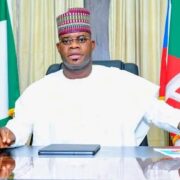

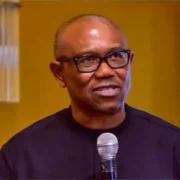

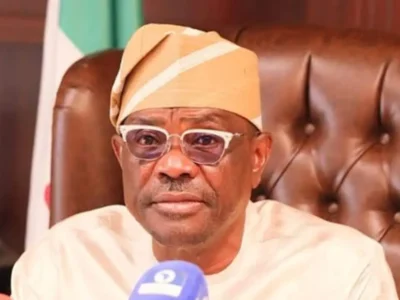
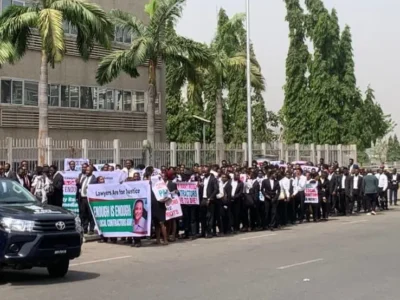
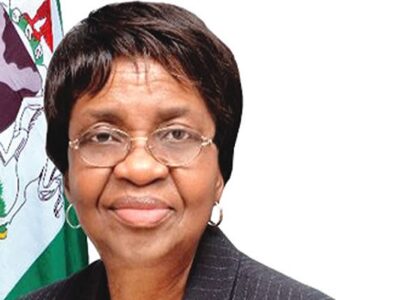
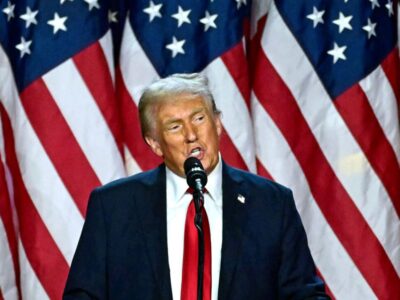









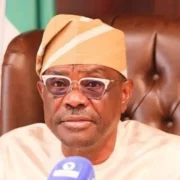
Comments